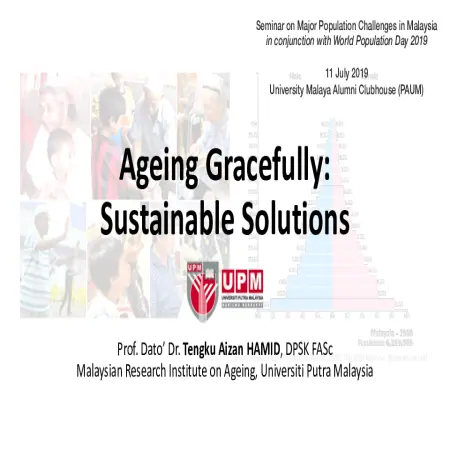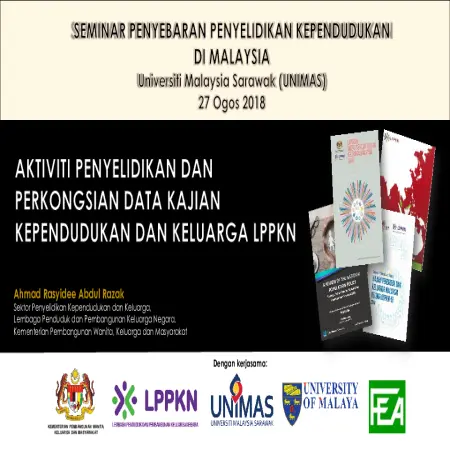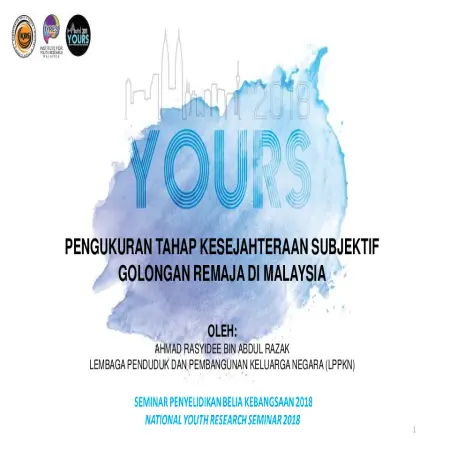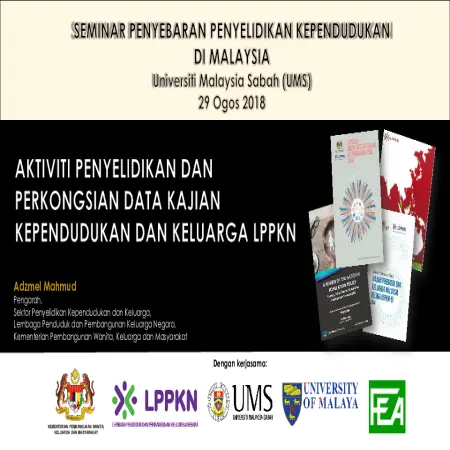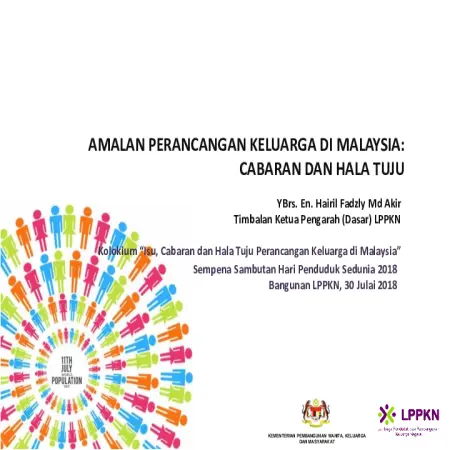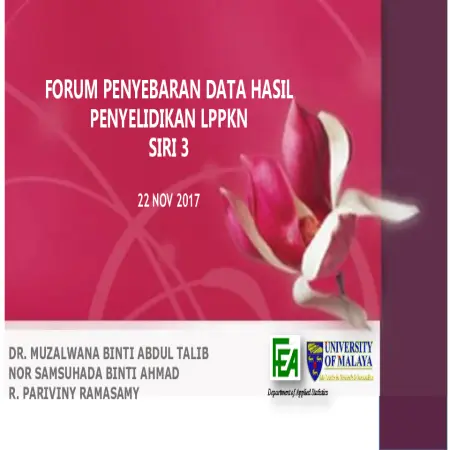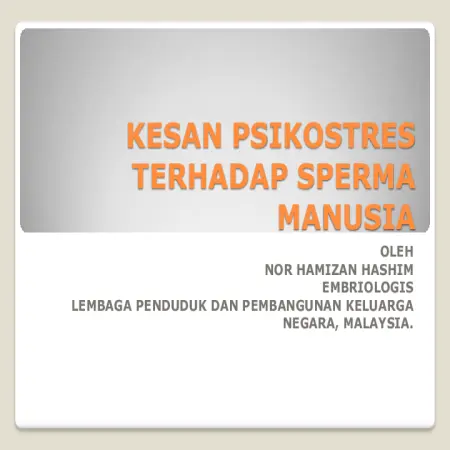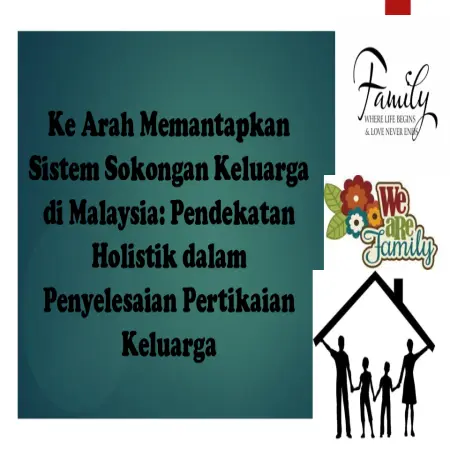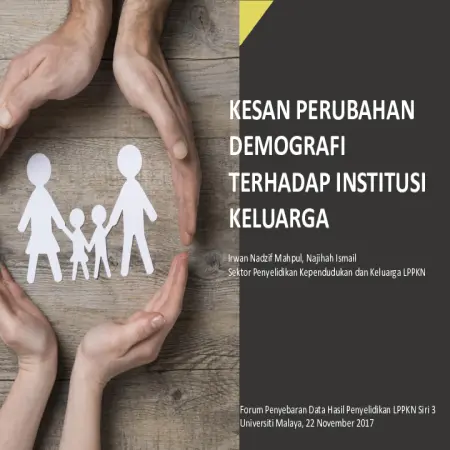Browse by Type
Results for Item type : "Conference or Workshop Item"
|
|
Pengukuran tahap kesejahteraan subjektif golongan remaja di Malaysia
Item Type: Conference or Workshop Item
Editor:
Year: 00/00/2018
Abstract: This presentation aims to measure the level of subjective well-being of adolescents in the country aged between 18 and 24 years old. A total of 2,597 respondents were analyzed using data from the Fifth Malaysian Population and Family Survey (MPFS-5). The article found that the level of subjective well-being is higher in female adolescents as compared to male adolescents, the level of well-being especially their standard of living, health and safety will be reduced in tandem with an increase in age.
|
|
|
|
|
|
Amalan perancangan keluarga di Malaysia: cabaran dan hala tuju
Item Type: Conference or Workshop Item
Editor:
Year: 00/00/2018
Abstract: Family planning allows people to attain their desired number of children and determine the spacing of pregnancies. It is achived through use of contraceptive method and the treatment of infertility. Proportion of women of reproductive aged 15-49 years who have their need for family planning satisfied with modern methods.
|
|
|
|
|
|
Perbandingan kesejahteraan psikologi wanita di kalangan keluarga komuter dan keluarga tradisional di Malaysia: satu kajian awal
Item Type: Conference or Workshop Item
Editor:
Year: 00/00/2017
Abstract: The objective of this study was to make a comparison of the psychological well -being of women among commuter families and not from commuter families based on the factors that contribute to the psychological well -being of each category. The study was also to compare female fertility levels among commuter families and non -commuter families.
|
|
|
|
|
|
Ke arah memantapkan sistem sokongan keluarga di Malaysia: pendekatan holistik dalam penyelesaian pertikaian keluarga
Item Type: Conference or Workshop Item
Editor:
Year: 00/00/2017
Abstract: This topic gives an overview of the institutions that are dealing with family disputes in Malaysia. Generally, these institutions can be divided into judicial institutions and non-judicial institutions. Judicial institutions refer to the civil courts and Syariah courts. While non-judicial institutions refer to the other bodies that provide family services, including the Ministry of Women, Family and Community Development, LPPKN, Legal Aid Department, Malaysian Mediation Centre, religious institutions, private counsellors and NGOs. However, one of the downsides in the present system is lack of cooperation between judicial and non-judicial institutions that are dealing with family matters. In the meantime, resolution of legal disputes does not necessarily indicate that the disputes have been treated from the root. In order to promote holistic resolution of family disputes, family members need to be given further treatment outside of the courts, to tackle other non-legal issues, such as emotional and mental conflicts. The family support system can facilitate the individuals, particularly by giving social support and counselling. In fact, the family support institutions are able to deal with family conflicts at the early stage, thus reducing the number of cases that need to go for court trial. Family service centres that have been established in other countries such as Singapore and Australia indicated a high success rate in the resolution of family disputes. It is viewed that a cooperation between judicial and non-judicial institutions can provide a holistic approach to the resolution of family disputes. Therefore, it is suggested that a strong networking to be established between these institutions, so as to improve the referral function between them. At the same time, it is important to create awareness among the society regarding family services that are available and how these services can help them in handling their family disputes.
|
|
|
|
|
|
Malaysian infertile men and women : do they suffer mental health issues?
Item Type: Conference or Workshop Item
Editor:
Year: 00/00/2017
Abstract: This study revealed that Malaysian infertile men and women demonstrated susceptibility to mental health problems that occurs more commonly among women than men. Thus, this study may facilitate fertility facilities to strategize and redesign better intervention for the infertile couples.
|
|
|
|
|
|
Kesan perubahan demografi terhadap institusi keluarga
Item Type: Conference or Workshop Item
Editor:
Year: 00/00/2017
Abstract: Since the 1980s, the fertility rate (TFR) has declined slowly from 4.0 to 2.0 children per woman in 2016. This means that every woman in the country at this point , on average, gives birth to 2 children in her lifetime. The rapid decline in fertility rate (TFR) has accelerated the aging process of the country. The TFR is likely to remain between 1.9 and 2.0 by 2020 and below 1.9 in the next decade. This presentation is about the impact of demographic change on family institutions.
|
|
|
|





